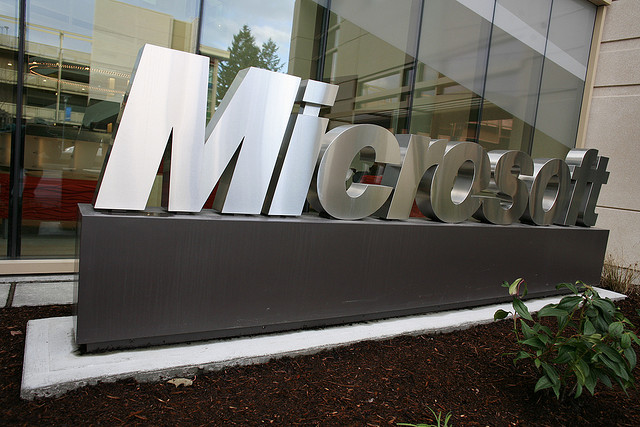
Microsoft has dark visions of what will happen if Google's big courtroom win against Oracle holds up on appeal. If Google's position that APIs can't be copyrighted stands, it will "destabilize" the entire software industry, write Microsoft lawyers in an amicus brief [PDF] filed this week at the US Court of Appeals for the Federal Circuit.
Oracle lost its courtroom battle to take a chunk out of Google's Android system using Java copyrights and patents last year. But now Oracle is appealing, and this week some allies showed up to tell the court they support Oracle's position. Most notably, Microsoft filed a brief together with NetApp and EMC.
Microsoft focuses on Oracle's argument that copyright supports "non-literal" elements of software. In other words, Google can be found a copyist—even if there's no actual copying of code. The "structure, sequence, and organization" (or SSO) of software "can, in some instances, be protected by the copyright in the work." Copyright violations can be found in a software case "even when the defendant did not copy the underlying developers' code," Microsoft insists, because the defendant has copied "some other, non-literal element of the software."
Overall, the Microsoft brief is a plea for the survival of a copyright doctrine that is quite vague. Microsoft wants "some" protection for software structures. Not for every program, but for "some" programs. "To be clear, amici do not suggest that those [structure] elements of every computer program are copyrightable, or that copyright in Oracle's Java platform would prevent second-comers from using the platform to foster further software development or create competing products," the Microsoft lawyers write. Other defenses, like fair use, must be considered. "But the promise of some threshold copyright protection... is a critically important driver of research and investment... and rescinding that promise would have sweeping and harmful effects throughout the software industry."
If judges lean toward a world in which copyright is about simply copying, in other words, the consequences will be disastrous.
Reading US District Court Judge Alsup's order supporting Google [PDF], one gets the sense that this is exactly what he would like to see. He chronicles the history of SSO copyright claims and notes that judges have looked dimly on them in recent years. A 1986 decision about dental software was the "high-water mark" for SSO copyright claims, and that decision has been criticized by multiple appeals courts in subsequent years.
Other organizations supporting Oracle include the Business Software Alliance, which filed a brief emphasizing that the bar for copyright on software is supposed to be low, and it should include the type of declaratory code and headers in the Java APIs that Oracle is trying to litigate over.
The Picture Archive Council of America and the Graphic Artists Alliance also filed a brief [PDF] arguing that Google's win on "fair use" should fail because Google copied "key source code." The argument seems to be that because the district court showed "little respect for the creativity involved in Oracle's works," the image-licensing business of these two groups would somehow be endangered by a fair use win for Google.
The results of this appeal are hard to predict. Still, Oracle has a giant hill to climb. Google essentially won twice—on API copyright and on fair use—so it has two ways to come out unscathed. But if Oracle, with support from other industry titans, manages to win on API copyright, it will certainly make it easier to have more copyright battles in the software business that don't involve much "copying" as most people understand the term.
reader comments
198